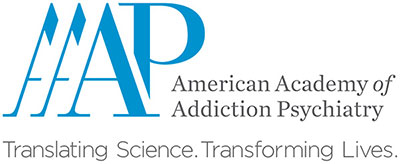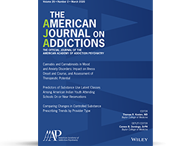The Substance Abuse and Mental Health Services Administration (SAMHSA) awarded a grant of $500,000 over two years to the American Academy of Addiction Psychiatry (AAAP) in collaboration with Yale University, the American College of Academic Addiction Medicine (ACAAM), and a coalition of 37 multidisciplinary healthcare learning institutions across the country. The grant will fund a pilot program to provide a foundational level of training in preventing and treating substance use disorders for health professionals including medicine, nursing, physician associate, social work, pharmacy and public health.
Until recently, most schools have had little if any training for their students in treating substance use disorders (SUDs). This initiative aims to provide an introduction to the fundamental elements needed for health professionals while simultaneously cultivating interprofessional learning across disciplines.
The two-year pilot project, “Expansion of Interprofessional Practitioner Substance Use Disorder Education (Ex-IPSE)”, will use a learner management system created by Stanford University tailored specifically for medical training known as massive open online course (MOOC) platform to increase access to students at all levels: undergraduate, graduate, residency, and fellowship while incorporating clinical case discussions and support interactive activities.
“It is critical that all health professionals have access to foundational SUD treatment curriculum and supporting resources,” said Ellen Edens, MD, Medical Director for the project. “With 20 percent of the general public having an SUD, ensuring that every health professional student is trained in evidence-based approaches to SUD prevention and treatment is essential if we are to address this public health priority. This initiative finally takes that important step.”
Within the first quarter of the program, the course will be released to the 37 healthcare schools recruited to be piloted by their students. Data from year one of the pilot will be collected to determine how effective the course materials were in improving student knowledge, changing attitudes toward the treatment of patients with SUDs and working in interprofessional teams. Results will be used to revise the curriculum and implement necessary changes. During the second year, the number of schools and additional disciplines including psychology, family and marriage therapy, and other healthcare professionals will be invited to participate, as well as the students piloting the course.
The curriculum was designed by an interprofessional team of experts at the Yale Schools of Medicine, Nursing, and Public Health under the direction of Dr. Edens and in collaboration with the Yale Poorvu Center for Teaching and Learning. An advisory board with representatives from the accreditation boards from each discipline will create questions to provide to each school to support their efforts in integrating the curriculum into their school’s program to aid sustainability over time. Ultimately, the goal is to get all health professionals to work and train together in the area of evidence-based clinical practices in preventing and treating SUDs.
“These disciplines work together every day so it makes sense that they be trained together,” Dr. Edens noted. “Interprofessional collaboration in SUD treatment education is a natural progression to complement what is already happening in hospitals and clinics around the country to address this public health priority.”



